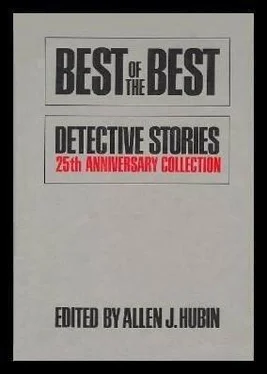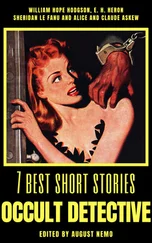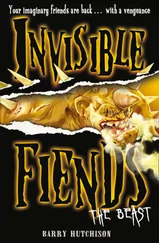Stephen Barr - Best of the best detective stories - 25th anniversary collection
Здесь есть возможность читать онлайн «Stephen Barr - Best of the best detective stories - 25th anniversary collection» весь текст электронной книги совершенно бесплатно (целиком полную версию без сокращений). В некоторых случаях можно слушать аудио, скачать через торрент в формате fb2 и присутствует краткое содержание. Город: New York, Год выпуска: 1971, ISBN: 1971, Издательство: E.P. Dutton & Co., Жанр: Детектив, на английском языке. Описание произведения, (предисловие) а так же отзывы посетителей доступны на портале библиотеки ЛибКат.
- Название:Best of the best detective stories: 25th anniversary collection
- Автор:
- Издательство:E.P. Dutton & Co.
- Жанр:
- Год:1971
- Город:New York
- ISBN:978-0-525-06450-3
- Рейтинг книги:5 / 5. Голосов: 1
-
Избранное:Добавить в избранное
- Отзывы:
-
Ваша оценка:
- 100
- 1
- 2
- 3
- 4
- 5
Best of the best detective stories: 25th anniversary collection: краткое содержание, описание и аннотация
Предлагаем к чтению аннотацию, описание, краткое содержание или предисловие (зависит от того, что написал сам автор книги «Best of the best detective stories: 25th anniversary collection»). Если вы не нашли необходимую информацию о книге — напишите в комментариях, мы постараемся отыскать её.
Best of the best detective stories: 25th anniversary collection — читать онлайн бесплатно полную книгу (весь текст) целиком
Ниже представлен текст книги, разбитый по страницам. Система сохранения места последней прочитанной страницы, позволяет с удобством читать онлайн бесплатно книгу «Best of the best detective stories: 25th anniversary collection», без необходимости каждый раз заново искать на чём Вы остановились. Поставьте закладку, и сможете в любой момент перейти на страницу, на которой закончили чтение.
Интервал:
Закладка:
He had not choked Crouch but broken his neck.
Part of him was bewildered, still waiting for Crouch’s confession, wondering why he did not say something. But another part of him knew that he had intended to kill Crouch for saying that Leonie was a bore — except on the honeymoon.
He stood back, getting his breath, staring at the wreckage in the armchair.
“My God! I’ve forgotten his damned dog!”
No unarmed man would stand a chance against that animal. There came a different kind of thudding in his ears now, which might have been made by the pads of the mastiff in the hallway of the cottage. Had the front door been left open? He couldn’t remember.
“It will see Arthur through the window, then jump through the glass.”
He caught up a rug and flung it over what had been Crouch.
He looked through the front window — from one side, then from the other to widen his angle — and saw nothing. He crossed to the side window, stepping over the feet of the corpse.
“Maybe I can see into the car.”
The brute was not sitting, or it would have been visible. By standing on a couple of thick books he was able to see part of the floor of the car.
“It’s not there. Then it must be prowling round the cottage looking for its master. Or in the hall, waiting for him to come out of this room.”
The thudding in his ears produced the illusion of any sound that panic conjured up. Wherever he feared the dog might be, there he heard it. In the garden — scratching on the wall — padding about upstairs.
The gun, with which he occasionally shot wild duck, was upstairs in the bedroom.
He knelt and peered through the keyhole. Was the beast crouching to spring as soon as the door was opened?
“It can’t know what has happened, or it would bark, or something.” Also, he remembered, Crouch had had no chance to call it. “Have to risk it!”
He opened the door, found nothing in the hallway. But the front door was open. If he could get upstairs he would be safe. He shut the parlor door behind him, then rushed the stairs.
He slammed the bedroom door and stood, panting, for some seconds. There was a box of cartridges under the bed. When he had loaded, panic passed, leaving him free to face the fact that he had not killed Crouch in self-defense. Nor would anyone believe that it had been accidental.
He was cool now, even self-possessed. Crouch had been on his way to Sussex: had changed his plans after he came out of his house. Therefore no one knew where Crouch had gone.
“Better locate that dog and let him have both barrels.”
Holding the gun like an infantryman mopping-up, he skirted the cottage, then the garden, then looked again in the car to make sure.
“Where are you? Come out, you brute, and fight.”
With the gun in his hand he no longer feared the teeth of the mastiff. Yet in some way the animal was dominating him, mocking both his scientific training and his common sense. He was aware that his hands were sweating, while his spine was cold and prickling.
He was fighting the eerie feeling that the dog had gone to summon the police.
He forced a laugh, but the idea refused to seem as absurd as it ought to seem. Crouch had said something about a thought-pattern, different from human intelligence.
And something about this particular dog being specially fond of policemen.
In a quarter of an hour the scientific training and the common sense had prevailed, and he was able to make rational arrangements.
The marsh, he knew, would be useless as a hiding place for the body. A few hours of rain and the whole waste became a network of rivulets, all swirling into the highway of the Thames. It would have to be the garden, the potato bed. The earth there was deep and soft.
It was nearly seven when he started digging, the loaded shotgun within arm’s reach. The moon would rise at ten fifty-seven. He must fill the grave before then. Not that he feared observation. But he would prefer to bury Crouch with as little light as possible, for the sake of his own unsteady nerve.
In this he was successful. When he had finished digging there was just enough light for his purpose.
He returned to the cottage, gritted his teeth, and set about his task. In his preoccupation with the corpse he had forgotten the risk of the mastiff appearing and taking him by surprise.
The grave was some fifteen feet from the large shed that served him as a garage. On the return journey, with his burden, he had to pass near the tail of Crouch’s car, parked between the cottage and the garage. That reminded him that he had left the shotgun at the grave side.
For a moment he stood still, paralyzed by physical fear of the mastiff. Then, hampered as he was, he ran. An hysterical sob broke from him as he found the shotgun. He turned at bay, his finger round the trigger. As the minutes lengthened he recovered his breath.
“I lost my head then. If I lose it again, I won’t make the grade.”
The moon was rising as he finished filling in the grave. Panic was far behind. Even if the mastiff were to return, it would not know what had happened, and it would not attack him unprovoked. He carried the shotgun comfortably under his arm as he returned the spade to the shed.
Back in the cottage he shut the front door. In the kitchen he heated water on the oil stove, then stripped naked and washed in the zinc footbath. When he had dressed, he prepared supper. He poured a small whiskey, then put the bottle away. He would have to drive Crouch’s car into London and leave it in a side street.
He did not bother to wash Crouch’s glass. That kind of precaution was a waste of energy. His plan was based on the assumption that he could prevent suspicion from reaching him.
Shortly after midnight he was rested and ready to start. He took a light overcoat, knowing that he could not return until the day buses were running — even then he would have a four-mile walk.
Moonlight was bathing the marsh, glistening on the distant Thames, when he stepped out of the cottage. He shut the door behind him. There was no need to lock your doors in those parts.
At the same spot — by the tail of Crouch’s car — came the same panic. He had stolen an oblique glance to the left, where the grave lay.
This time he saw the mastiff.
It was by the grave, sitting motionless on its haunches, guarding it as if it were guarding the car. The moonlight caught its eyes, which gleamed green.
Ignorant of the ways of a dog, Stretton thought it was unaware of his presence. He backed slowly, holding his breath, out of the line of vision. Then he bolted into the cottage for the shotgun — and spare cartridges.
The sporting gun, he knew, would be useless except at a range of a few feet. He would have to walk right up to the brute — or hold his fire to the last half-second if it attacked him. He crept out, telling himself that in less than a minute it would be all over — one way or the other.
The mastiff was in the same position. The same green glint came from the eyes. Within ten feet of it Stretton stopped. The mastiff took no notice of him. The luminous eyes were not looking at him. They were looking in the direction of the lane, as if expectantly.
Stretton advanced. The mastiff gave a low, indifferent growl — a protest rather than a menace. And still it would not look at him. It was positively ignoring him. Following a thought-pattern of its own?
But the mastiff’s thought-pattern, if any, had never envisaged the nature of a gun...
The job of burying it would be even more laborious than that of burying its master. It would have to wait until he had rested. He managed to lever the carcass into a wheelbarrow and lurch with it into the garage. Then he had to go back to the cottage for another wash.
Читать дальшеИнтервал:
Закладка:
Похожие книги на «Best of the best detective stories: 25th anniversary collection»
Представляем Вашему вниманию похожие книги на «Best of the best detective stories: 25th anniversary collection» списком для выбора. Мы отобрали схожую по названию и смыслу литературу в надежде предоставить читателям больше вариантов отыскать новые, интересные, ещё непрочитанные произведения.
Обсуждение, отзывы о книге «Best of the best detective stories: 25th anniversary collection» и просто собственные мнения читателей. Оставьте ваши комментарии, напишите, что Вы думаете о произведении, его смысле или главных героях. Укажите что конкретно понравилось, а что нет, и почему Вы так считаете.












